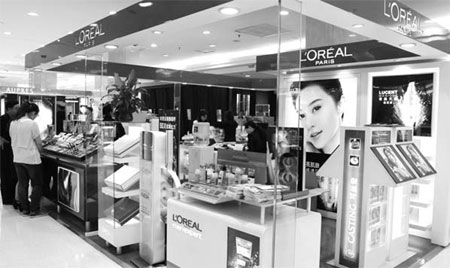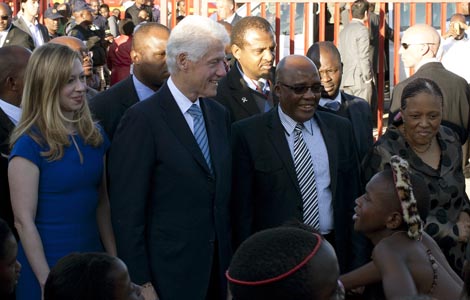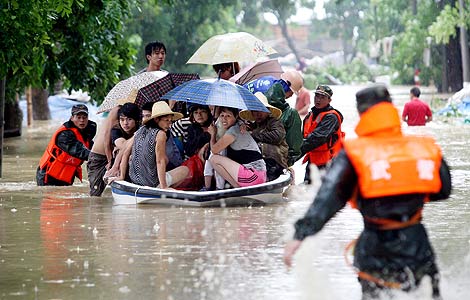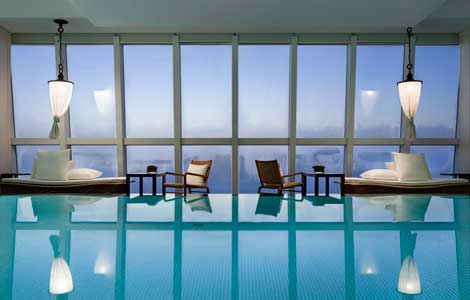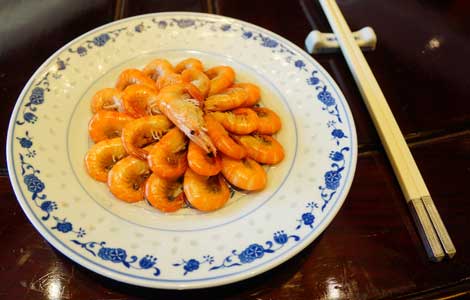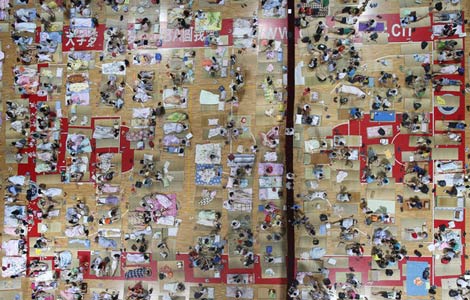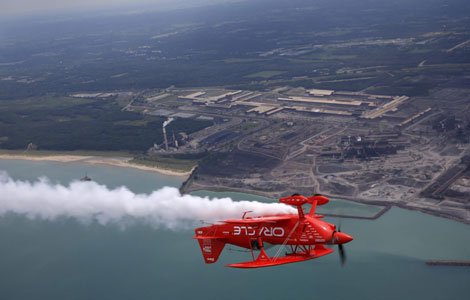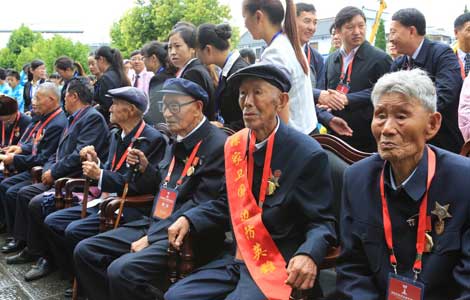Magic Holdings faces takeover bid from France's L'Oreal Group
Updated: 2013-08-17 08:28
By Wang Ying in Shanghai (China Daily)
|
||||||||
|
L'Oreal Group, the world's largest cosmetics and beauty company by sales, said its takeover of Magic is awaiting approval from China's Ministry of Commerce. Geng Guoqing / for China Daily |
France's L'Oreal Group is offering to take over China's leading facial mask brand for HK$6.30 (81 US cents) per share, L'Oreal and target Magic Holdings International Ltd said in a joint announcement on Thursday.
The price puts the value of the deal at about HK$6.5 billion, Xinhuanet.com reported on Friday.
L'Oreal's takeover plan is supported by Magic's board of directors. Six key shareholders, representing 62.3 percent of the company's equity, have already voted for L'Oreal's proposal.
"We have been following the development of Magic for some time," said Alexis Perakis-Valat, chief executive officer of L'Oreal China and group executive vice-president Asia-Pacific.
L'Oreal, the world's largest cosmetics and beauty company by sales, said its offer is awaiting approval from China's Ministry of Commerce.
Facial masks are a fast-growing product in China's beauty market with very promising prospects, said Ben Cavender, associate principal of the China Market Research Group.
Cavender said facial mask sales are growing more than 20 percent annually, compared with an average of 8 to 12 percent for the overall beauty market.
The acquisition will give L'Oreal a solid foothold in the facial mask segment as Magic Holdings controls about 26 percent of the market, he said.
Magic isn't the only Chinese brand to draw L'Oreal's attention. The global cosmetics giant acquired Chinese skincare brand Mininurse in 2003 and completed its second China purchase, that of Yue-Sai, in 2004.
Analysts said these brands build their success on offering local alternatives to big-name international brands.
Mininurse is part of L'Oreal's consumer products division. "We have faced some challenges but we have not given up. On top of the work on the brand, it is important to note that we have developed the original factory in Yichang as L'Oreal Asia's production center for color cosmetics," said Perakis-Valat.
Yue-Sai achieved strong growth in 2012, much faster than the segment average, and this rapid growth is continuing in 2013.
Its positioning around traditional Chinese medicine solutions, powered by advanced extraction technologies, is unique and resonates extremely well in today's China, said Perakis-Valat.
"Domestic brands are purchased mainly for three reasons: to acquire a brand name, to take away brand-loyal customers or to eliminate a competitor," said Qi Xiaozhai, director of the Shanghai Commercial Economic Research Center.
International brands often expand their presence in the local market via acquisition, mainly for the first two reasons, said Qi.
But Qi said that Chinese brand owners should be aware of the negative aspects in the sale of their brands.
A recent example was TJoy, which was purchased by French cosmetics and fragrance group Coty Inc for 2.4 billion yuan ($392 million) in 2011. The revenue of TJoy tumbled by half in 2012, china.com.cn reported.
A big global company can provide strong financial support in rebuilding a local brand, and that should pay off within a few years. But it is more important to buy the right brands, said Cavender.
Chinese business owners traditionally attach great importance to physical assets such as equipment, but they pay little attention to intangible assets such as brands. But for an enterprise, a brand is actually the cornerstone of the business, said Qi.
wang_ying@chinadaily.com.cn
(China Daily 08/17/2013 page10)
Most Viewed
Editor's Picks

|

|

|

|

|

|
Today's Top News
Dozens die in Egyptian bloodbath
Watchdog won't block Abe's military changes
Xi vows medical support to Africa
China trims US Treasury holdings in June
US urged to share with China
Defense chief kicks off US visit
Error puts Shanghai bourse in a spin
Japanese leaders claim neutrality
US Weekly

|

|
